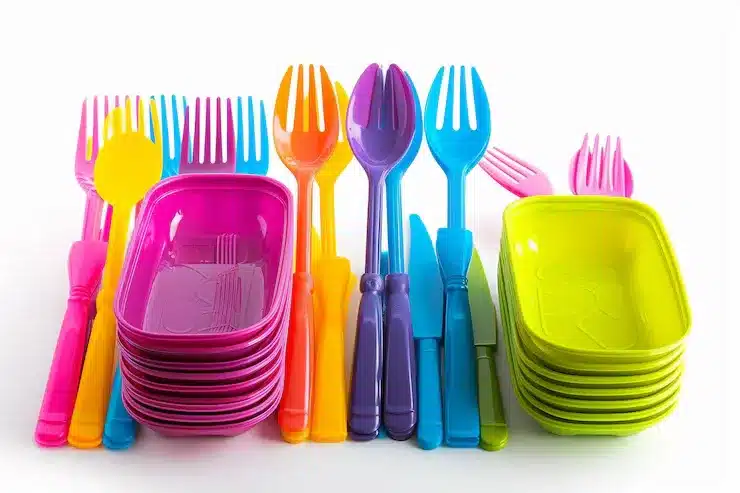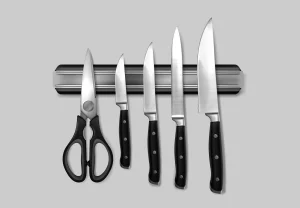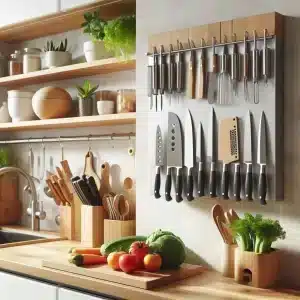Plastic kitchen utensils are a staple in many households due to their durability and versatility. However, keeping them clean can be a bit tricky if you don’t use the correct methods to remove grease, stains, and odors. In this article, we will explore effective ways to clean plastic kitchen utensils using common household ingredients, and provide you with a comprehensive guide to ensure your utensils remain spotless and odor-free.
Benefits of Properly Cleaning Plastic Kitchen Utensils
Properly cleaning your plastic kitchen utensils has numerous benefits:
- Healthier Cooking Environment: Removes harmful bacteria and food residues.
- Extended Lifespan: Maintains the integrity and appearance of the utensils.
- Improved Aesthetics: Keeps utensils looking clean and new.
- Enhanced Flavor: Prevents lingering odors and tastes from affecting your food.
Materials Needed for Cleaning Plastic Kitchen Utensils
To effectively clean your plastic kitchen utensils, you will need the following materials:
- Vinegar
- Lemon
- Bleach
- Isopropyl alcohol
- Baking soda
- Dish soap
- Warm water
- Soft sponge or cloth
- Scrubbing brush (for tougher stains)
Step-by-Step Guide to Cleaning Plastic Kitchen Utensils
- Initial Rinse: Rinse the utensils with warm water to remove loose food particles.
- Soak in Vinegar Solution: Mix equal parts of vinegar and water in a bowl. Soak the utensils for 15-20 minutes to loosen grease and stains.
- Scrub with Baking Soda: Sprinkle baking soda on a damp sponge and scrub the utensils to remove stubborn stains.
- Rinse and Dry: Rinse thoroughly with warm water and dry with a clean cloth.
- Eliminate Odors: For persistent odors, soak the utensils in a mixture of lemon juice and water for 10 minutes, then rinse.
Using Vinegar and Lemon for a Natural Clean
Vinegar and lemon are excellent natural cleaners for plastic utensils:
- Vinegar: Effective at cutting through grease and disinfecting surfaces.
- Lemon: Adds a fresh scent and helps to neutralize odors. The acidity also aids in breaking down grease.
Removing Stubborn Stains with Baking Soda and Isopropyl Alcohol
For more challenging stains:
- Baking Soda: Its abrasive nature helps to scrub away tough stains without scratching the plastic.
- Isopropyl Alcohol: Useful for disinfecting and removing stubborn grease stains. Apply with a cloth and scrub gently.
Eliminating Odors from Plastic Utensils
To remove odors:
- Baking Soda Paste: Make a paste with baking soda and water, apply to the utensils, let sit for 15 minutes, then rinse.
- Lemon Soak: Soak utensils in lemon juice and water to freshen them up.
Precautions When Using Cleaning Products on Plastic
Avoid Harsh Chemicals: Use bleach sparingly and dilute it properly to avoid damaging the plastic.
- Test First: Test cleaning solutions on a small area first to ensure they do not discolor or damage the utensil.
- Use Soft Sponges: Avoid abrasive scrubbing pads that can scratch the surface.
Tips for Maintaining Plastic Kitchen Utensils in Good Condition
- Regular Cleaning: Clean utensils immediately after use to prevent stains and odors from setting.
- Avoid High Heat: Do not expose plastic utensils to high heat, as this can cause warping or melting.
- Proper Storage: Store utensils in a dry, cool place to prevent bacteria growth.
Importance of Making a Script for Cleaning Plastic Kitchen Utensils
Creating a script for cleaning plastic kitchen utensils ensures consistency and thoroughness. It helps you remember each step and ensures that nothing is overlooked, leading to more effective cleaning and maintenance.
Steps to Make a Cleaning Script
- Identify Cleaning Tasks: List all the tasks needed to clean the utensils.
- Sequence Tasks: Arrange the tasks in the order they should be performed.
- Detail Each Step: Provide detailed instructions for each task.
- Include Materials Needed: List all the materials required for the cleaning process.
Tips for Making a Good Cleaning Script
- Be Specific: Clearly describe each step to avoid confusion.
- Include Time Estimates: Provide approximate times for each task to help with planning.
- Use Simple Language: Ensure the script is easy to understand and follow.
- Test and Revise: Test the script to ensure it is effective, and make revisions as necessary.
Elements to Include in a Cleaning Script
Brief overview of the importance of cleaning and maintaining plastic utensils.
- Materials List: All necessary cleaning supplies.
- Step-by-Step Instructions: Detailed steps for the entire cleaning process.
- Safety Precautions: Tips on how to safely use cleaning products.
- Maintenance Tips: Advice on how to keep utensils in good condition between cleanings.
Maintaining clean plastic kitchen utensils is essential for a healthy cooking environment and prolonging the life of your kitchen tools. By following the steps and tips provided, you can effectively remove grease, stains, and odors using natural and safe ingredients. Additionally, creating a detailed cleaning script can help ensure consistency and thoroughness in your cleaning routine. Embrace these techniques to keep your plastic kitchen utensils looking and smelling fresh.





